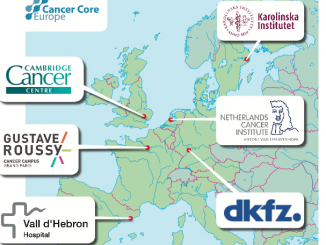
ESO, CNIO and NRCO Conference on Familial Cancer
19/05/2016 – 20/05/2016, Madrid, Spain
Chairs: R. Eeles, UK – W.D. Foulkes, CA – M. Robledo, ES – H. Vasen, NL
The ESO, CNIO and NRCO Conference on Familial Cancer aims to present the advances in this field from a multidisciplinary point of view. Familial cancer has become an important challenge for oncologists, geneticists, molecular biologists, and other professionals, due to its implications not only at individual but also at the familial and social level. Along the last years, new approaches have allowed to increase our knowledge about the genes responsible for familial cancer, as well as their biological functions, which is essential to find an appropriate treatment in each case. The next generation sequencing is extensively used in the search of causal mutations, but it represents a new challenge regarding the interpretation of variants, many of which must be classified as of unknown significance. Biannually the Conference brings together leading basic and translational researchers and clinicians involved in the diagnosis, treatment and follow-up of patients with familial cancer. These meetings help to establish connections among professionals that in turn promote progress in the understanding and treatment of these diseases. Besides the lectures from international experts, young scientists can present their work as short lectures and posters. This format aims to facilitate extensive discussion of current issues and stimulate new ideas.
LEARNING OBJECTIVES
• Selection criteria, landscape of breast and ovarian cancer genes, and clinical management
• Genetics and clinical management of hereditary colorectal cancer
• Therapeutic strategies in the era of personalized medicine
• Translating genetic risk factors to the surveillance and clinical management of prostate cancer
• Rare cancers: Gastric cancer, pancreatic cancer, tuberous sclerosis, Gorlin syndrome, PTEn and related diseases, multiple endocrine neoplasia type 1, among others
• Implications of applying next generation sequencing to the diagnosis
MAIN TOPICS
• Breast and ovarian cancer
• Colon and prostate cancer
• Rare cancers
• Implications of applying next generation sequencing to the diagnosis
All other details are available on the website of the European School of Oncology.





